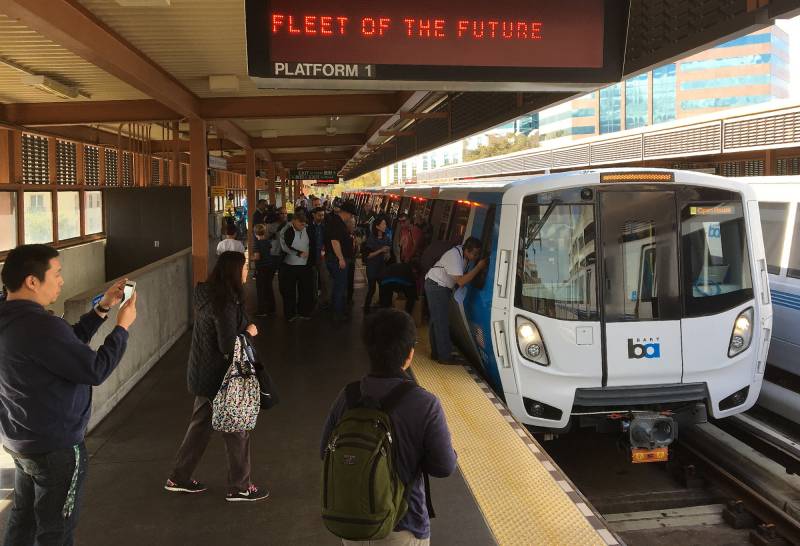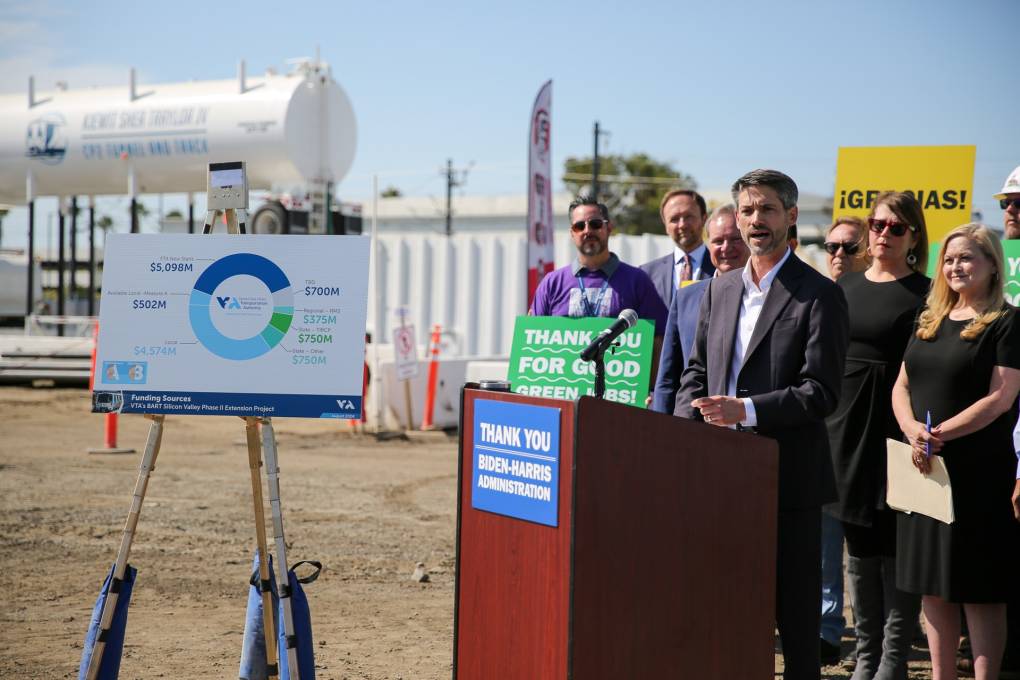However, he said agency officials see benefit in placing EV chargers at stations across the Bay Area to reduce greenhouse gas emissions and to make chargers more accessible as the state moves towards its goal that all new passenger vehicles be zero-emission by 2035.
“EV chargers would be great not just for BART riders but also for the surrounding community,” Allison said, speaking generally of the agency’s plans to expand EV charging.
He said EVs are perceived to be for people with higher incomes, “but the great thing about BART stations is they’re in every kind of community. And that would be a large step towards making EV adoption more equitable.”
Padilla agreed with the sentiment in his press release, noting that BART stations are close to multifamily housing, workplaces, hospitals, schools and more. The project will prioritize rolling out chargers to stations in or near disadvantaged communities.
BART will certainly roll out more chargers in its parking facilities, Allison said, but the timeline is still being determined as the agency prioritizes reliability. Future chargers are estimated to cost $15,000–$20,000 per plug.
Other projects to receive funding from the award announced by Padilla include efforts to build out car charging infrastructure along the U.S. Route 395 corridor in Inyo County, throughout Los Angeles County, and in the Shingle Springs Band of Miwok Indian Reservation and along U.S. Route 50 in El Dorado County.
The California Department of Transportation will receive $102.4 million to build out charging and hydrogen fueling stations for medium- to heavy-duty trucks for freight corridors along the West Coast.


